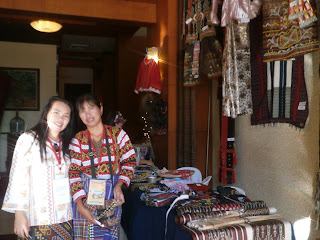Report on the School of Living Tradition (SLT) Summit in Zamboanga City
I. Introduction The School of Living Tradition (SLT) Summit held in Zamboanga City served as a significant event in the promotion and preservation of indigenous cultural heritage in the Philippines. One of the key attendees was Agnes Nieva Escudero, who actively participated in discussions on the importance of traditional knowledge transmission to the younger generation. The event highlighted the role of cultural masters in preserving indigenous crafts, arts, and languages through non-formal education settings, which aligns with UNESCO’s call for the preservation of cultural heritage.
II. Objectives of the SLT Summit
To reinforce the role of SLTs in the preservation of indigenous skills and techniques.
To encourage cultural masters to continue imparting their knowledge to young members of their ethnolinguistic communities.
To integrate SLTs into broader national education and cultural development programs.
To discuss challenges faced by SLTs, such as funding, sustainability, and youth engagement.
III. Key Discussions and Outcomes
The summit emphasized the importance of non-formal and practical demonstration-based education in ensuring the transmission of indigenous traditions.
Community-based learning environments such as SLTs were recognized as crucial in addressing the risk of cultural extinction.
Cultural specialists highlighted the need for government and private sector support to enhance SLT programs and ensure their sustainability.
Collaboration with national agencies such as the National Commission for Culture and the Arts (NCCA) and Department of Education (DepEd) was proposed to integrate SLT methodologies into mainstream education.
I
The SLT initiative aligns with the broader goals for equitable education and the inclusion of marginalized and indigenous communities.
Culturally Responsive Education
The goal of a safe, inclusive, and holistic education system resonates with SLTs, which provide indigenous children with a culturally relevant learning environment.
The summit’s emphasis on traditional learning systems supports NCCA's commitment to promoting equity-based policies and standards.
Addressing Learning Gaps Among Indigenous Communities
The Philippines faces a critical learning crisis, with students unable to read at the expected level (SEA-PLM, 2019).
SLTs offer an alternative education approach that ensures the inclusion of Indigenous learners, potentially improving literacy and numeracy in these communities.
Capacity Building and Cultural Preservation
The 9th Country Programme for Children (CPC9) under UNICEF aims to develop education systems that promote lifelong learning. SLTs contribute to this by building local capacity and training young learners in practical, community-based skills.
Cultural masters serve as educators, providing knowledge that is critical for the preservation of intangible cultural heritage.
Potential Consultancy Opportunities
Experts in indigenous education, cultural preservation, and community-based learning could support initiatives through research, policy development, and implementation of culturally responsive curricula.
The summit reinforced the need for education consultants who understand the intersection of indigenous knowledge systems and modern educational frameworks.
V. Recommendations and Next Steps
Strengthen Collaboration Between SLTs and UNICEF’s Education Initiatives
Establish partnerships between DepEd, NCCA, and UNICEF to integrate SLT methodologies into alternative learning systems.
Encourage education consultants from the UNICEF roster to engage in SLT development and policy formation.
Policy Advocacy and Funding Support
Advocate for national policies that recognize SLTs as formal or alternative learning institutions.
Secure funding for SLT sustainability through government and private partnerships.
Enhance Training Programs for Cultural Masters
Develop capacity-building programs that enhance the teaching skills of cultural masters, ensuring the effectiveness of knowledge transmission.
Provide educational materials and digital resources to support indigenous learning initiatives.
VI. Conclusion The SLT Summit in Zamboanga City reinforced the importance of indigenous knowledge transmission in preserving cultural heritage while also highlighting its potential integration into national education policies.
Its objectives align closely with education consultants, as both aim to promote inclusive, equitable, and sustainable education systems. Moving forward, greater collaboration between cultural institutions could significantly enhance education opportunities for indigenous communities, ensuring that cultural heritage remains a vital component of Philippine education.












No comments:
Post a Comment